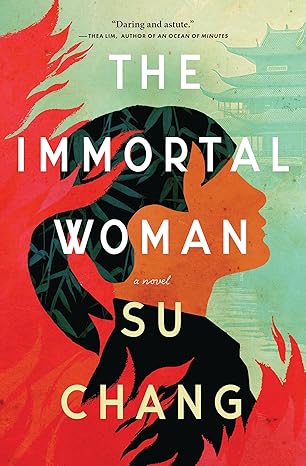by

A Chinese mother and daughter wrestle with the demons of their past. The mother, once a student Red Guard leader in 1960s Shanghai and a journalist at a state newspaper, was involved in a brutal act of violence during the Tiananmen Square protests and lost all hope for her country. The daughter is a student at an American university on a mission to become a true Westerner. She tirelessly erases her birth identity, abandons her Chinese suitor, and pursues a white love interest, all the while haunted by the scars of her upbringing. Following China’s meteoric rise, the mother is slowly dragged into a nationalistic perspective that stuns the daughter. Their conflicts and final confrontation result in tragic consequences, exposing the constant tension Chinese immigrants face – the push and pull between the pressure of assimilation and the allure of Chinese nationalism. How does unresolved political trauma lead to internalized racism and eroded identities? What’s the path to genuine belonging in a hostile geopolitical climate? By turns wry and lyrical, The Immortal Woman is a generational story of heartbreak, resilience, yearning, and ultimately, hope, offering a rarely seen insider’s view of the fractured lives of the new Chinese immigrants and those they leave behind.
An orange blob swayed on the match’s phosphorous tip, its glow illuminating the dusky jungle of anatomy charts and
skeletons. She opened the drawers; journal papers spilled out and beckoned the fledgling flame between her fingers. The
fiery tendrils licked the byline—Hong Ting, MD—before caressing a page with a burst of energy. The flame sank into
the flesh of the paper, a darkening stain percolating downward and fanning outward, until it clutched the wooden desk
and devoured the dry fuel with a beastly hunger. The wood popped and crackled. She jerked her chair back and hopped
aside, her heart thumping, her hands grabbing all they could reach—charts and jars and tubes, Caucasian masks, Asian
masks. Feed the beast! Feed the beast! With each round of renewed fuel, the flames jigged and jived, a mesmerizing
dance. She danced too, her silhouette on the wall a wild blurry dynamo, swelling, ballooning. The women burst in,
shrieking.
Ma’s gnarled hands were on hers, wrestling, killing the beast. Strings of apologies leaped out of Ma’s mouth,
saturating the thinning air. She couldn’t breathe; she had to fight back. But the doctor lunged at her like a White Bone Spirit, whiplashing her with shrill cries: “Psychos! You and your mother—you are both psychos!”
Jessica Westhead, author of Avalanche and Worry on https://houseofanansi.com/products/the-immortal-woman?srsltid=AfmBOopmlUP90oNlZkj7G1o0W0iQuePdICXF0FsHAkiTVhLkEmDzUyUy wrote:“Daring and astute, The Immortal Woman goes beyond asking what people will do to survive. How will they live, with themselves and with each other, once the surviving is done?”
“Perceptive, mesmerizing, and open-hearted.”





